Young film workers shine spotlight on Scotland's 'invisible women'
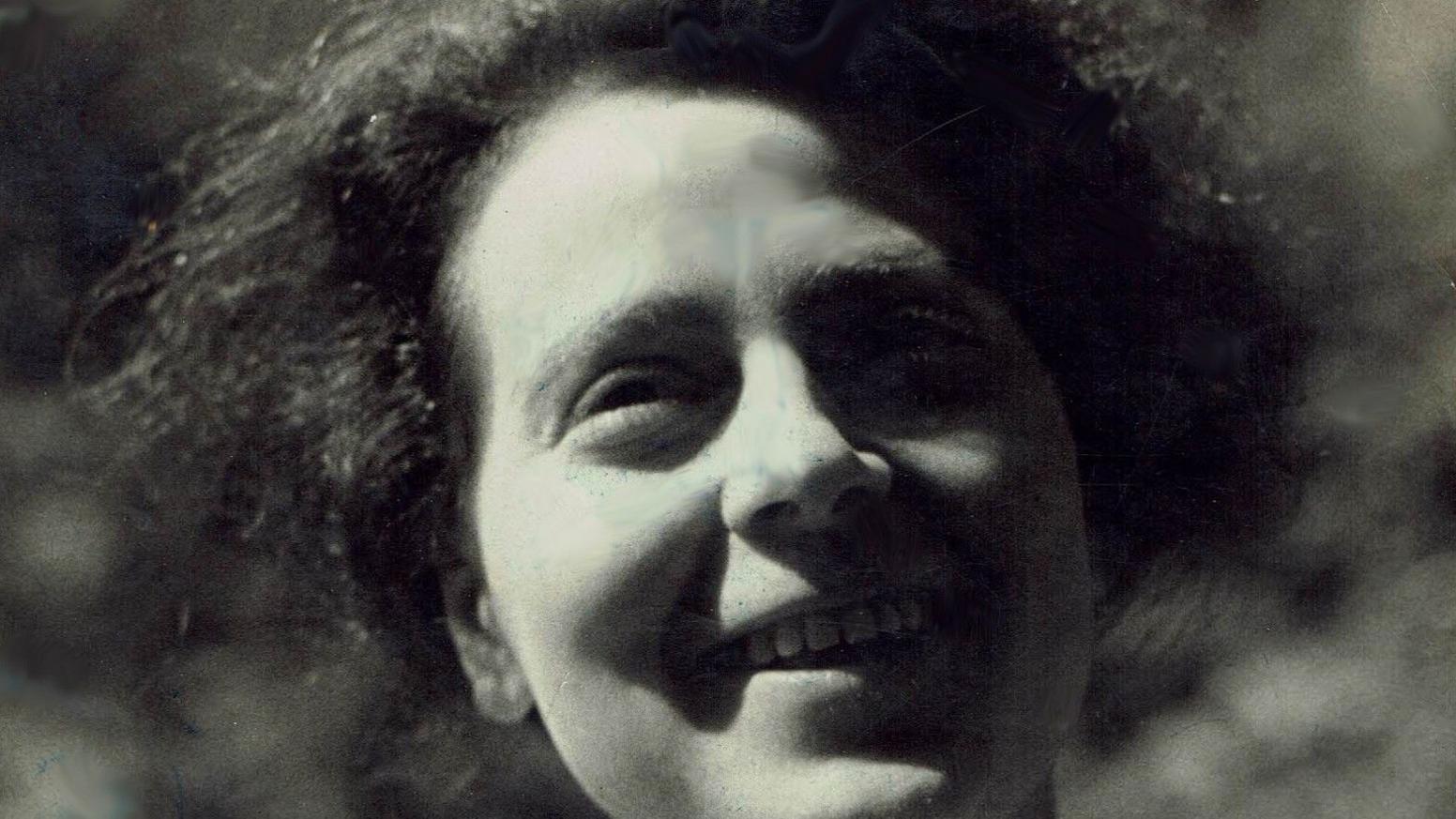
Ruby Grierson was a pioneering Scottish documentary filmmaker
- Published
They were the pioneering Scottish filmmakers omitted from history.
However "innovative" work of the country's groundbreaking female documentarians is now being championed by a new generation.
The likes of Marion and Ruby Grierson and Jenny Gilbertson covered topics as diverse as housing problems, crofting and travelling with dogs across Canada in their films.
Yet their achievements were often obscured as they had to battle against sexism during their careers.
The Scottish collective Invisible Women have helped to spotlight their films, as part of wider work focused around forgotten women in the film industry.
Camilla Baier and Rachel Pronger formed the group after they learned about Marion and Ruby Grierson's work while studying at Edinburgh University.
While the sisters' sibling John is hailed as the father of documentary filmmaking, his relatives' achievements were obscured, even in biographies of their brother.
Yet they were both filmmakers themselves throughout the 1930s, with Ruby creating work such as the pacifist film People of Britain and wartime propaganda piece They Also Serve, while youngest sibling Marion created a series of travelogues.
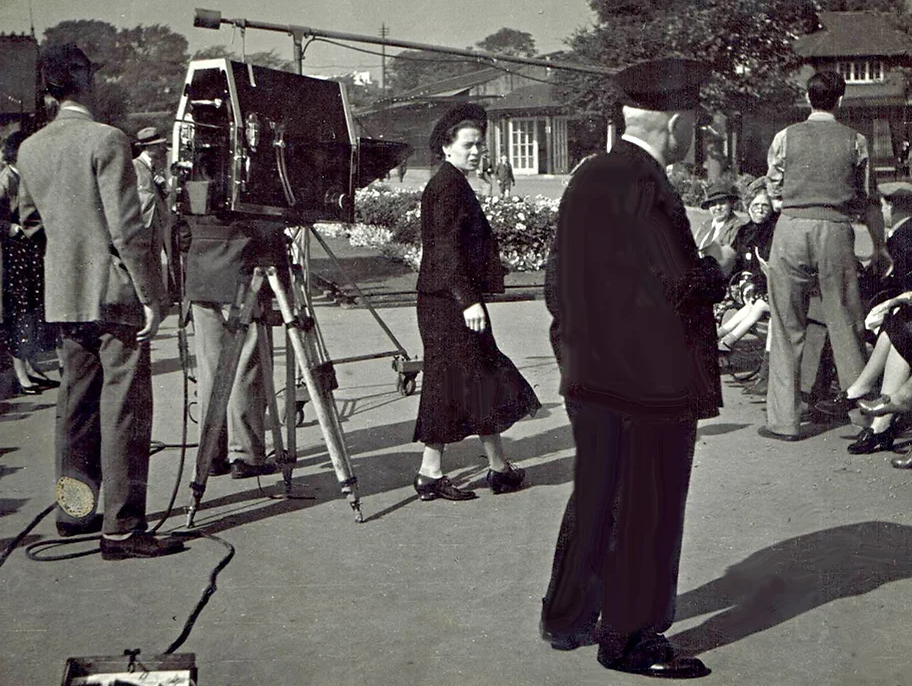
Marion Grierson at work on set
Ms Baier, who lives in Edinburgh, explained: "They got a foot in the door as script girls and other jobs on set with John Grierson, but then they started making their own films.
"Ruby had a really good way with people so she was looking at different social issues, especially housing.
"She had a way of speaking directly to subjects with more sensitivity, rather than having an air of superiority and that allowed her to get a more honest and real response."
Tragically, Ruby died while filming British children being evacuated to Canada in 1940 during World War II.
The boat she was travelling on, the SS City of Benares, was struck by a torpedo and sunk, killing more than 200 people on board.
She was just 36.
Ms Baier described Marion Grierson's films as "beautiful", but her career did not last much longer than her sister's.
It ended in 1946 when she married and later gave birth to her first child.
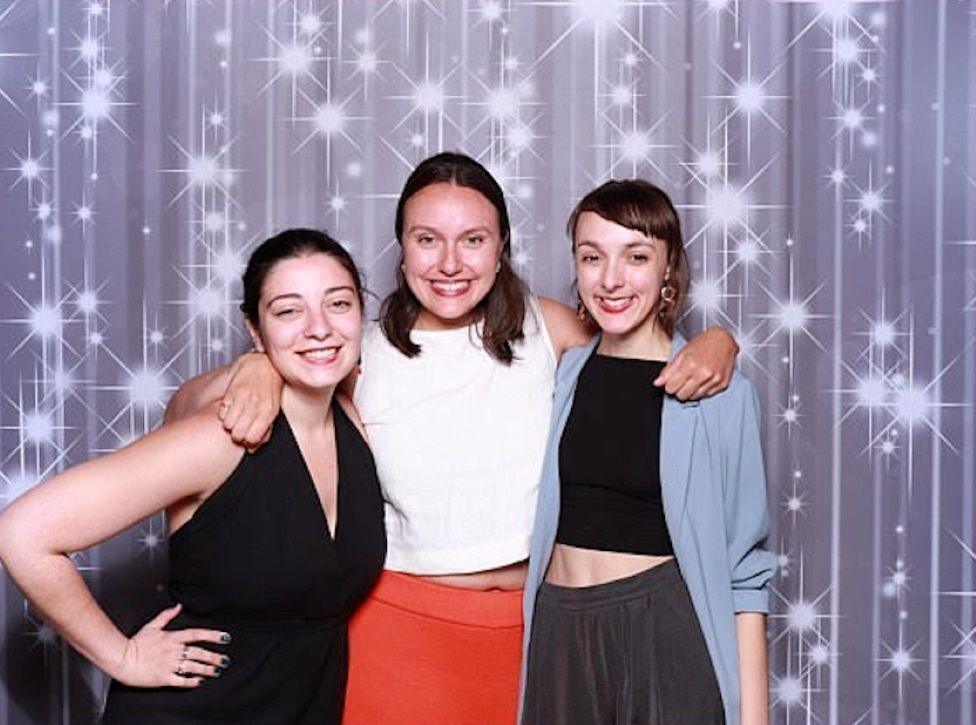
Camilla Baier, Lauren Clarke and Rachel Pronger at the Edinburgh International Film Festival in 2022
Discovering the work of the Grierson sisters proved inspiring to Ms Baier and Ms Pronger.
They formed Invisible Women with the aim of investigating and finding out more about other females in the film industry who have been lost to history, with Glasgow-based Lauren Clarke later joining the group.
What started as a passion project has swiftly expanded over the past several years, with the group now working alongside the likes of the British Film Institute and the Glasgow Film Festival.t
Throughout March and April the group will screen a series of films at the Glasgow Film Theatre from Dorothy Arzner, widely regarded as the only female director working in Hollywood throughout the 1930s and 40s.
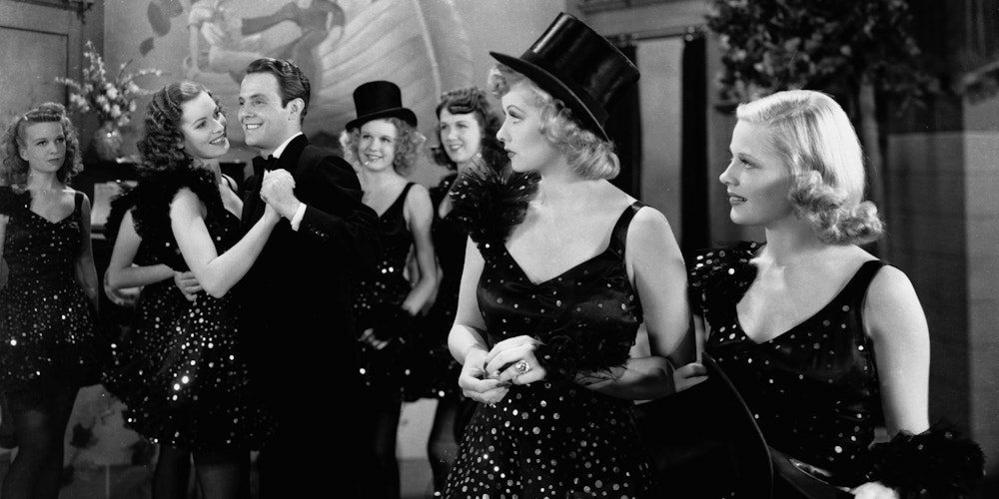
A scene from Dance Girl Dance by Dorothy Arzner
Ms Clarke believes that understanding the past can also help modern women working in the film industry.
She said: "We do a lot where we pair contemporary works with more archival work and showcase that. You really have to understand the past to know where you’re going.
"You want to know whose shoulders you are standing on."
One of the most remarkable women they have highlighted is Jenny Gilbertson, a Glasgow woman who was determined to make her own films.
In the 1930s she moved to Shetland, where her work looked at crofting, among other topics.
After stopping filmmaking to raise her family, she unexpectedly returned to the field after her husband died in the late 1960s.
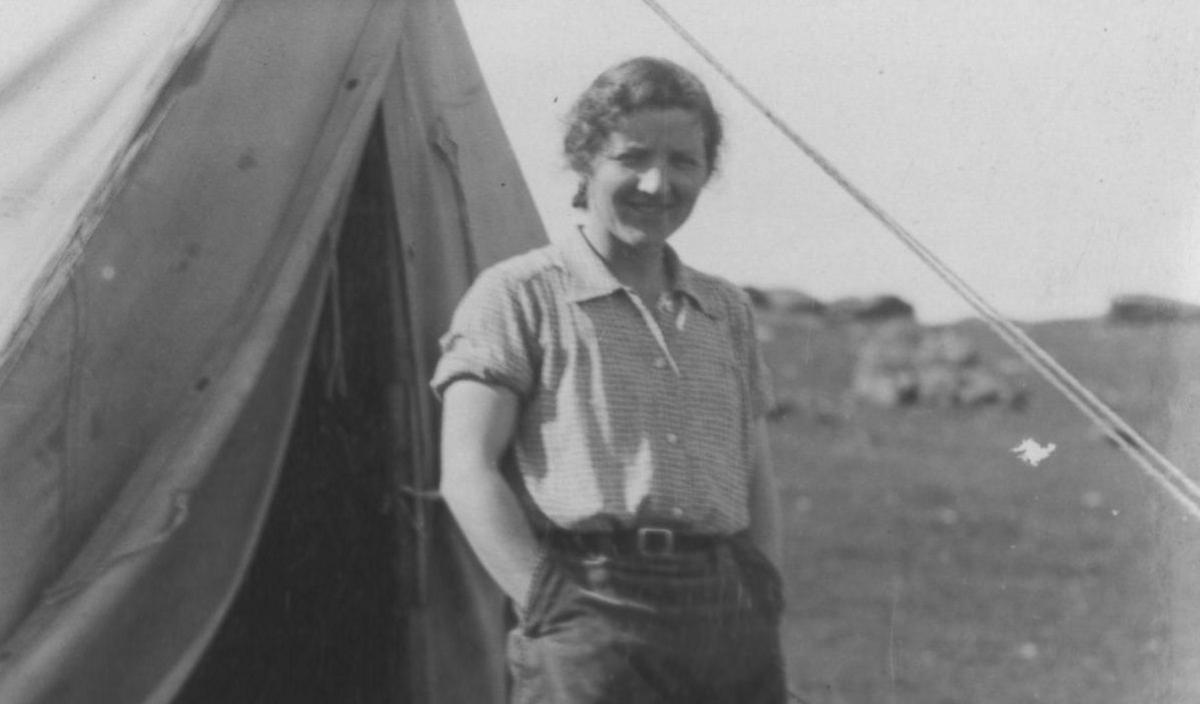
Jenny Gilbertson was in her 70s when she made a film about travelling across Canada on a dog sled
Ms Pronger said: "We were dazzled when we came across Jenny Gilbertson's story.
"When she was widowed she decided she was going to go to Canada and go across the country on a dog sled, filming local communities on her journey there.
"She was in her 70s at the time, so it was amazing what she did. The film [Jenny's Dog Team Journey] is absolutely beautiful."
It is stories like that, whether at home or abroad, that Invisible Women hope to gain recognition for.
All three work in the film industry themselves, and although spread out geographically [in Glasgow, Edinburgh and Berlin] their passion for this project remains undimmed.
Ms Pronger said: "I think it’s so important to know that you’re part of a lineage, and that women have continued to express themselves in film even when they were restricted.
"It reminds you that we belong in the film industry."